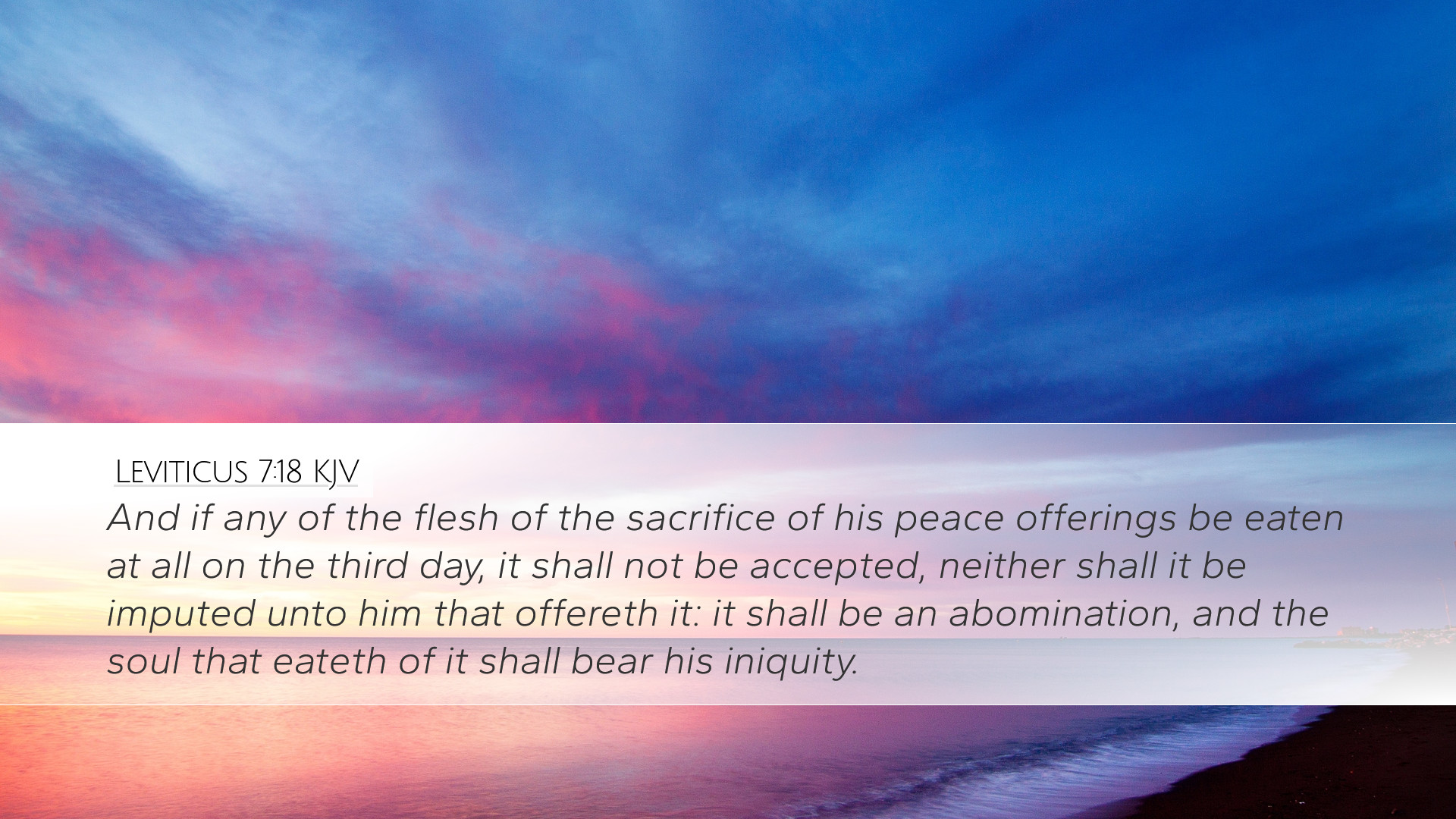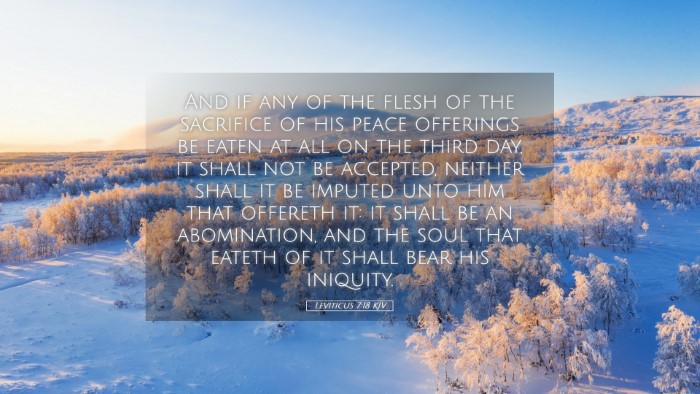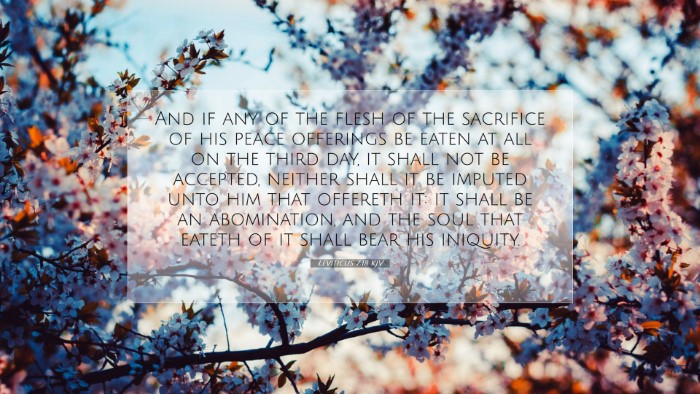Commentary on Leviticus 7:18
Verse: "And if any of the flesh of the sacrifice of his peace offerings be eaten at all on the third day, it shall not be accepted, neither shall it be imputed unto him that offereth it: it shall be an abomination, and the soul that eateth of it shall bear his iniquity."
Introduction
Leviticus 7:18 is an important verse within the context of the sacrificial system presented in the Mosaic Law. This verse outlines the stipulations regarding the consumption of the peace offering, particularly emphasizing the consequences of not adhering to God's commands regarding such offerings. The references from various public domain commentaries provide a deeper understanding of its theological implications.
Contextual Framework
In the book of Leviticus, the laws surrounding sacrifices are detailed to instruct the people of Israel on how to maintain holiness and a right relationship with God. The peace offering, or fellowship offering, was a voluntary act of worship that symbolized peace between God and the individual, as well as communal relationships among the worshipers.
Exegesis of Leviticus 7:18
The emphasis in Leviticus 7:18 is on the time frame of the consumption of the offering:
- Third Day Prohibition: The specific prohibition against consuming the sacrifice on the third day highlights the importance of timing and sanctity in worship. This stipulation reflects the holiness of God's ordinances, asserting that the peace offering has a designated time of acceptance.
- Concept of Abomination: The term 'abomination' signifies severe disapproval in the context of divine commandments. This shows how seriously God regarded adherence to the sacrificial laws.
- Spiritual Consequences: The passage also mentions that the individual who consumes the meat on the third day bears his iniquity, indicating personal accountability for one's actions within the framework of the covenant.
Insights from Matthew Henry
Matthew Henry emphasizes the spiritual implications of the peace offering, noting that it was an act of gratitude and fellowship with God. He points out that the regulations regarding the time limit to consume the offering serve a dual purpose:
- God's Holiness: Henry insists that God desires His people to treat offerings with the utmost respect since they symbolize deeper spiritual truths.
- Human Responsibility: The indication that one who disobeys must bear their iniquity speaks to the larger theme of human responsibility in fulfilling covenant obligations. Henry remarks on the necessity of a sincere heart when approaching God.
Insights from Albert Barnes
Albert Barnes further explores the notion of the peace offering as a means of communion with God. He discusses the implications of the prohibition against eating the flesh on the third day:
- Symbolism of the Days: Barnes illustrates that the timing reflects the idea that spiritual matters should not be taken lightly. Allowing the meat to go uneaten after the prescribed period diminishes the sanctity of the offering.
- Judgment and Accountability: Barnes highlights the severe nature of God's judgment in these laws, suggesting that such stipulations were intended to instill a healthy fear of the Lord and awareness of the gravity of sin in the community.
Insights from Adam Clarke
Adam Clarke offers a linguistic and cultural analysis of Leviticus 7:18, shedding light on practices during Biblical times. He emphasizes:
- Cultural Context: Clarke notes that food often symbolizes fellowship in ancient times and that the peace offerings were intended to be shared meals that reaffirmed community. The avoidance of eating the offerings after three days was designed to prevent any negative spiritual connotations.
- God's Desire for Purity: Clarke remarks on God’s desire for purity in worship practices. The stipulation was not arbitrary but rather designed to foster a deeper understanding of holiness among the Israelites.
Theological Implications
This verse leads to significant theological reflections:
- Understanding of Holiness: The stipulations concerning peace offerings underline the necessity of holiness in one’s relationship with God.
- Personal Accountability: The concept of bearing iniquity emphasizes individual responsibility. Each worshiper must be conscientious about their role in maintaining the sacredness of their relationship with God.
- Communal Aspects of Worship: The peace offering reflects a communal relationship while maintaining personal accountability. It serves as a reminder that our actions affect the wider community of believers.
Conclusion
Leviticus 7:18 provides profound insights into the nature of God’s covenant with His people, emphasizing the seriousness of adhering to His laws regarding worship. Through the analyses of Matthew Henry, Albert Barnes, and Adam Clarke, we recognize that these stipulations are not mere historical artifacts but carry significant implications for contemporary believers in understanding holiness, accountability, and communal worship.


